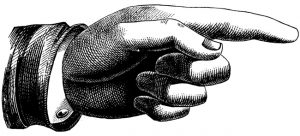Lookie there! Apply intermittent fasting techniques to your spending habits
Today's topic is courtesy of Travis Pizel from Enemy of Debt, and he wrote about applying the principles of intermittent fasting, which is a dieting (read: "lifestyle") technique where food is only consumed within an 8-hour window of time each day, to your spending habits.

Welcome to the very first installment of "Lookie There!", a series of posts that are designed to highlight interesting, thought-provoking or downright weird financial news or opinions from others bloggers on the Internet. The idea is to find the most interesting content out there and talk about it - right here.

Today's topic is courtesy of Travis Pizel from Enemy of Debt, and he wrote about applying the principles of intermittent fasting, which is a dieting (read: "lifestyle") technique where food is only consumed within an 8-hour window of time each day, to your spending habits.
Travis tried the intermittent fasting lifestyle technique for a week and claims to have lost 5 pounds. Alrighty then, not too shabby. Well done, good sir.
How would intermittent fasting work for your spending habits? For Travis, spending intermittently means he does all of his spending on non-bill-related-expenses within a 48-hour window during the week.
His 48-hour spending period looks something like this:
The 48-hour window starts on Friday at 5pm and ends on Sunday at 5pm. He fills up his cars with gas on Friday and shops for groceries on Saturday of each week. All entertainment-related expenses (ie: movies, mini golf, whatever) is also done during this 48-hour window, and no other spending is permitted on non-essential items at any other point during the week. Yes, including food.
This is pretty hard core. I like it.
I might take this strategy one step further and tweak my 48-hour window by moving it earlier in the day on Friday - say, to 7am (which, of course, moves the end of the spending period up to Sunday at 7am). That way, one of the two spending days is a Friday, which for most people is a workday. Including a workday as part of your spending period means you have less opportunity to spend on stuff that you might regret later.
How would intermittent spending help?
Essentially, this requires the streamlining of expenses due to the fairly small window of time that spending takes place during the week. As a result, one will tend to prioritize the spending that NEEDS to happen during the 48-hour period, and anything that can't fit during that window will be pushed to next week.
For those expenditures that were pushed to the following week, it gives people another opportunity to consider whether or not that expense is truly wise. I can see where the extra week might help to provide the realization that maybe spending $40 bucks on that cool computer mouse probably isn't the best idea.
Of course, your budget is still intact and adhered to. The primary difference is when money is spent, not necessarily the amount that is spent. But even so, a positive byproduct of streamlining your expenses to a 48-hour window is the additional thought given to each and every expense. I believe the possibility is very real that spending might decrease when performed during such a short period of time. Lifestyle intermittent fasting can work the same way.
Interesting thought. Would you ever consider spending your non-bill-related money during a substantially truncated period of time during the week?